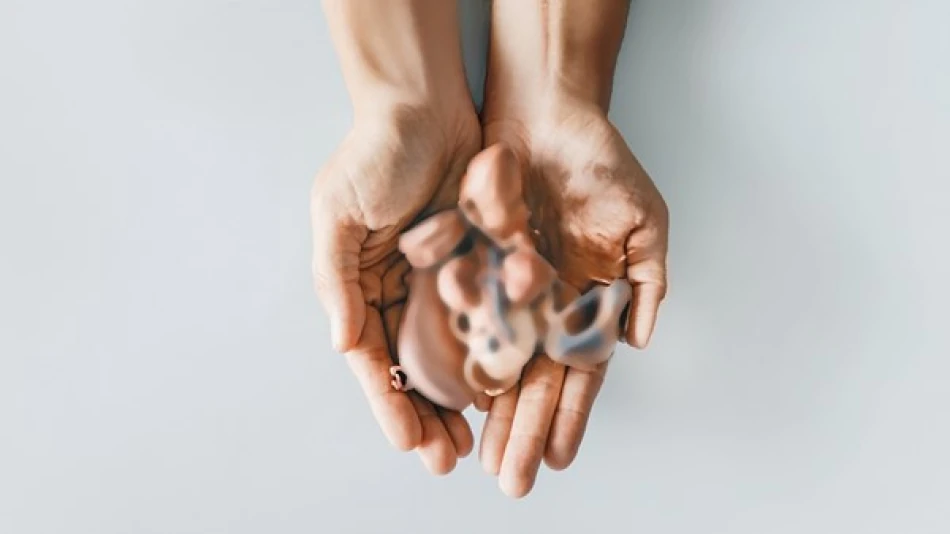
Pioneering Emirati Organ Transplant Breakthroughs Offer Hope for Patients Seeking Second Chance at Life
UAE Emerges as Regional Pioneer in Life-Saving Organ Transplant Medicine
The United Arab Emirates is cementing its position as a regional leader in organ donation and transplantation, with over 900 successful transplant procedures completed across major medical centers and groundbreaking innovations including robotic-assisted surgeries. As the country marks World Organ Donation Day, the UAE's comprehensive "Hayat" program and advanced medical infrastructure are transforming the landscape for patients facing organ failure across the Middle East.
Record-Breaking Transplant Numbers Signal Medical Hub Status
The UAE's transplant achievements paint a picture of rapid medical advancement that rivals established global centers. Sheikh Khalifa Medical City alone has performed over 730 kidney transplants since 2015, including 68 procedures in 2025, while liver transplant programs are expanding rapidly with 15 operations this year, including five pediatric cases.
Cleveland Clinic Abu Dhabi has emerged as the region's first multi-organ transplant center, completing 912 organ transplant procedures between 2017 and 2025. The breakdown reveals the scope of the UAE's capabilities: 402 kidney transplants, 387 liver transplants, 69 lung transplants, 36 heart transplants, and 18 pancreas transplants.
Technological Innovation Drives Success Rates
The UAE's adoption of cutting-edge medical technology is accelerating patient outcomes and expanding treatment possibilities. Robotic-assisted surgery has become a cornerstone of the country's transplant programs, offering enhanced precision and faster recovery times. Cleveland Clinic Abu Dhabi recently performed the UAE's first robotic-assisted lung transplant, marking another milestone in the country's medical evolution.
Advanced techniques now include split liver transplants that can save multiple patients from a single donor, paired kidney exchange programs using international matching platforms, and ABO-incompatible transplants that significantly expand the donor pool.
Regional Context: UAE's Strategic Medical Positioning
The UAE's transplant success reflects broader regional trends toward medical tourism and specialized healthcare. Unlike neighboring countries that primarily send patients abroad for complex procedures, the UAE is attracting international patients, particularly from Egypt and other Arab nations, as evidenced by the patient testimonials highlighting successful treatments.
This shift positions the UAE alongside Singapore and Turkey as a preferred destination for Middle Eastern patients seeking advanced medical care, while reducing dependence on Western medical centers that have traditionally dominated complex transplant procedures.
Government-Backed Infrastructure Investment
The UAE's "Hayat" program, launched by the Ministry of Health and Prevention, represents a systematic approach to organ donation that mirrors successful models in Spain and the United States. The program coordinates between multiple medical institutions and maintains registries for potential donors, creating a national framework that maximizes organ utilization.
Federal Decree Law No. 5 of 2016 provides the legal foundation for organ transplantation, ensuring procedures meet international standards while respecting cultural sensitivities around organ donation in the region.
Patient Stories Reveal Human Impact
The personal accounts from transplant recipients illustrate the program's life-changing impact. Aisha Al Shamsi, who received a kidney transplant after four years of dialysis, represents thousands of patients who have found new hope through the UAE's expanding transplant network.
Particularly significant are the pediatric cases, including the UAE's youngest liver transplant recipient at just five months old. These breakthrough procedures demonstrate the country's capability to handle the most complex cases that previously required treatment abroad.
Cultural Shift Toward Organ Donation
The UAE is actively working to overcome traditional cultural barriers to organ donation through targeted outreach in schools, mosques, and cultural centers. The emphasis on family donor stories and religious leader engagement reflects lessons learned from successful donation programs in Catholic-majority countries that initially faced similar cultural challenges.
Market and Investment Implications
The UAE's transplant success signals broader opportunities in the regional healthcare market. Medical tourism revenues from transplant procedures can generate significant foreign currency earnings, while the concentration of expertise attracts pharmaceutical companies and medical device manufacturers.
For healthcare investors, the UAE model demonstrates how government backing, regulatory clarity, and technology adoption can rapidly develop specialized medical capabilities that serve regional markets worth billions in annual healthcare spending.
Challenges and Future Expansion
Despite impressive growth, organ shortage remains a critical challenge. The UAE's focus on living donor programs and international exchange partnerships represents practical solutions that other developing medical markets could replicate.
The integration of digital health platforms, including remote patient monitoring systems, positions UAE transplant centers at the forefront of post-operative care innovation. These technological advantages could prove decisive as regional competition for medical tourism intensifies.
The UAE's transplant achievements reflect a broader transformation from oil-dependent economy to diversified hub for advanced services. As other Gulf states pursue similar strategies, the country's early investment in transplant medicine provides a sustainable competitive advantage in the growing regional healthcare market.
Most Viewed News

 Layla Al Mansoori
Layla Al Mansoori






